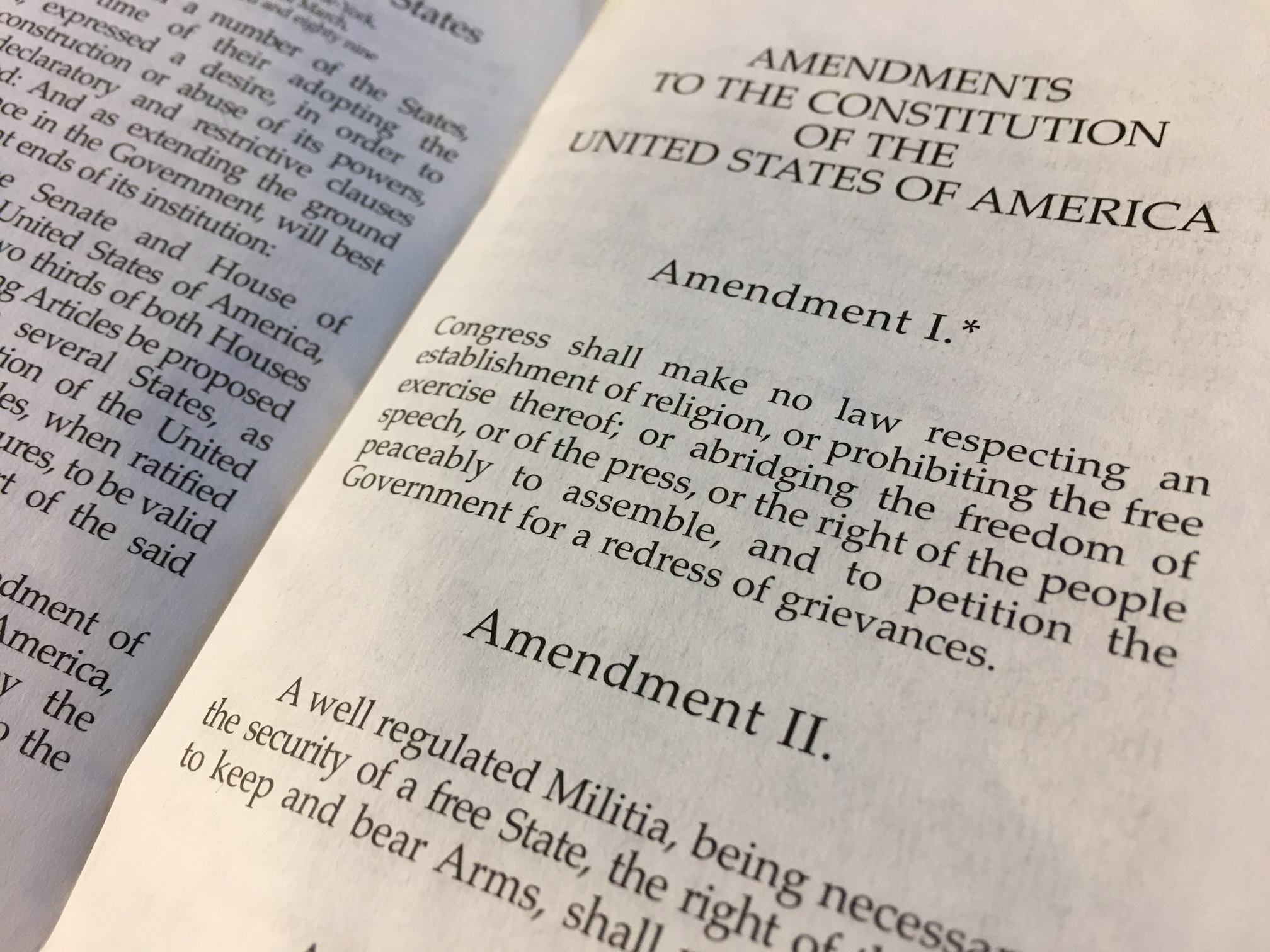What the U.S. Constitution Says and Doesn’t Say About Truth
Stephen Henderson talks with two experts about how the Constitution affects truth and whether it holds solutions for our disinformation crisis.

The U.S. Constitution doesn’t mention the word “truth.” But the document does rely on Americans to seek it.
“Misinformation is like a virus. You can reduce it by being a barrier to it.” –Jonathan Rauch, author “The Constitution of Knowledge: A Defense of Truth”
In a world of mass disinformation where truth is often contested, scholars Jonathan Rauch and Jim Townsend discuss the ways misinformation is being weaponized in contemporary America, and the ways the public needs to combat it.
Listen: Scholars discuss how the U.S. Constitution addresses, and doesn’t address, “truth.”
Guests
Jonathan Rauch is a senior fellow in the Governance Studies program at the Brookings Institution. He’s also the author of several books, including his newest, “The Constitution of Knowledge: A Defense of Truth.” He says, although truth is not explicitly part of the U.S. Constitution, the document sets out a process of negotiation and balancing power, premised on underlying truths. “The Constitution is relying on us to use the First Amendment wisely,” he says.
For the first time in American history, Rauch says U.S. officials are using Russian-style tactics to swamp the public with so much disinformation that people don’t know what’s true. The consequences, says Rauch, split us apart, create separate realities, make us ungovernable and can help foster civil war. “What’s happening now has no precedent in the United States, at least what I know of,” he says.
He compares our truth crisis to the COVID-19 pandemic, saying, “Misinformation is like a virus. You can reduce it by being a barrier to it.”
Rauch says it’s important to call out those who are speaking mistruths, as politicians — more than talk radio hosts and social media outlets — are the biggest spreaders of misinformation. Former President Donald Trump spoke so many mistruths, says Rauch, that “When he opened his mouth, he was probably lying.”
“We have to own up to the fact that a significant reason why we’re failing to address these situations is that lawmakers don’t hold themselves accountable and they don’t hold the executive branch accountable.” –Jim Townsend, Levin Center
Jim Townsend is the director of the Levin Center at Wayne State University law school and a former member of the Michigan House of Representatives. He says the public can’t solve important problems when it disagrees on certain truths. At the Levin Center, Townsend says he is trying to encourage people “to return to the facts,” and constrain representatives to do that. “They have to feel that pressure,” he says, referring to lawmakers.
Townsend says representatives also have to work across political boundaries to do what former Sen. Carl Levin taught, which was to conduct investigations with those with whom they disagree. Many policy issues go unsolved, says Townsend, because legislators are not favoring the better angels of their nature.
“We have to own up to the fact that a significant reason why we’re failing to address these situations is that lawmakers don’t hold themselves accountable and they don’t hold the executive branch accountable,” he says.
Trusted, accurate, up-to-date.
WDET strives to make our journalism accessible to everyone. As a public media institution, we maintain our journalistic integrity through independent support from readers like you. If you value WDET as your source of news, music and conversation, please make a gift today.

